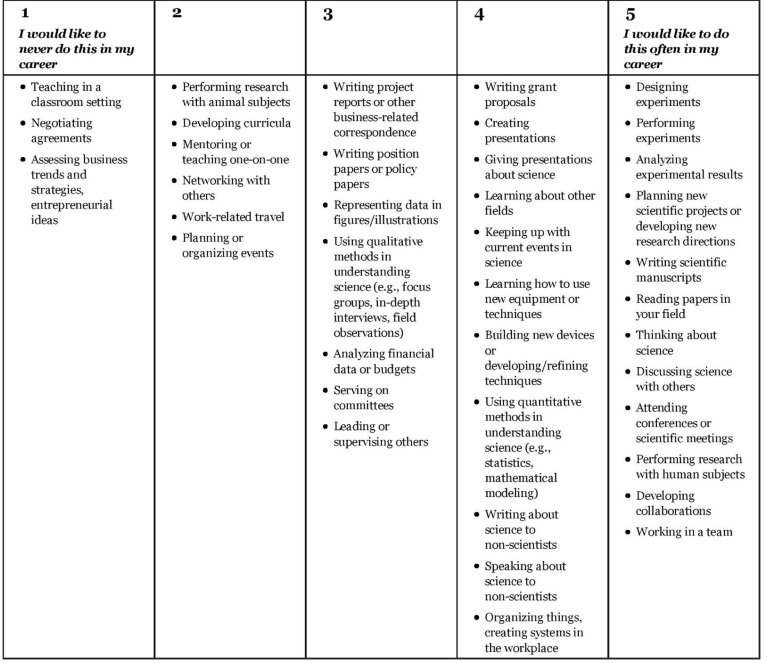OK, so this is weird. This post has gotten bumped a few times for more time pressing/less depressing/etc. posts… and now I’m in a situation at work where I have a lengthy R&R, a couple new projects, and prior to that I had picked up two of the unfinished work projects and have meetings with people about them and I’m back to having too much to think about to worry about creativity! On the plus side, I did finish my major committee responsibility for the year last week, so hopefully I haven’t actually overcommitted at this point. But I still want your thoughts on creativity! And the blog is now down to 54(!) unfinished drafts.
- We are down to 68 drafts in the blog folder. It will be less once we package up abandoned posts from 2014– we still need to decide which we’re going to completely abandon and which we are going to finish. I’m not sure what we’ll do when we’re completely out.
- I am down to four unfinished work projects for which the data are complete but they need to be written up or rewritten or re-figured out. One has been rejected like 7 times so now I’m trying to figure out what to do with that. One is a bit underpowered so maybe I should abandon it, I dunno. One the results didn’t turn out like our pre-registration plan had assumed so I’ve got to figure out how to deal with that and where to send it (my two co-PI are both deans now so… it’s just me). One is almost done– we’re still rewriting, so that’s what I’ve been focusing on but I can’t touch the restricted data. After that’s done… I need to actually get to work on the pre-registered one because in a couple years that will no longer be interesting.
- I have a grant proposal under review. I don’t have high hopes for it, but you never know.
- I don’t have any new big ideas that I’m working on. For years I’ve had more than I had time for. But once the big project in bullet 2 is done, I won’t really have anything to present places. It is unsettling.
- Many of the ideas I’d had but didn’t have time to work on have since been done by other people. They were good ideas, but I was busy doing other stuff.
- A couple years ago I was giving grad students advice on where to get ideas and now…
- I do have a couple projects where I’m like 4th author out of 7, but I’m not in charge of those. I do stuff when asked.
- I think what I need to do is just spend some time reading. I have 463 emails of abstracts of lists of working papers and published journals in a “to-read” folder. I used to read them weekly and keep up with what was going on, but I got really really busy. And then it just got easy to move stuff into that folder and forget about it. But I also think that had a detriment to being up on what the profession is finding interesting. I still go to conferences and seminars, but…
- And I’m back to doing a ton of service. My department head is overwhelmed with some changes that have been being made and has asked one of the committees I’m on to help out. But just kind of vague disorganized help I don’t know where to start. So my other track head counterpart and I got together and we’re like, how do we frame this problem, what information do we need to know… and it’s just a big mess that includes a ton of moving parts. So that may be where a lot of my organizing etc. mental power is going. This is another one of those cases where we don’t HAVE to be putting in the work we’re putting in, but if we don’t then the whole thing is going to be a disaster because we’ve tried not putting in the work and things exploded (or just didn’t happen).
- (Aside: we actually have 3 track heads, but the other one is overwhelmed with other service.)
- I’m thinking of applying for a mini-dean position (like dean of X, not dean of a college). Don’t want to be department chair, but could possibly be a mini-dean. I dunno. People drain me but if I’m not getting a raise and I can’t leave the state… It’s the unnecessary meetings that kill me.
- Am I becoming less creative?
- Am I just jettisoning bad ideas before putting time in them so I’m more selective? Am I too scared to work on the good ideas that I have because they might not be efficient?
- I feel like it’s easier to work on out-there stuff if you also have like a simple and clean RD project (or DD, though that’s a bit less fashionable) going on at the same time.
- Am I too busy with other stuff? I feel like I was busier when I had small children, so maybe it seemed like I was getting more done in the time I had available?
How do you stay creative?






